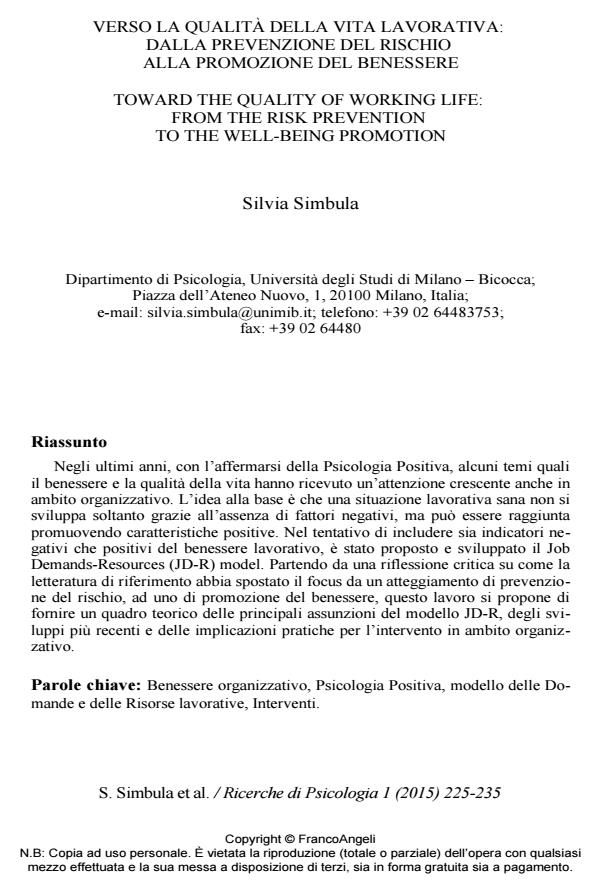Toward the quality of working life: from the risk prevention to the well-being promotion
Journal title RICERCHE DI PSICOLOGIA
Author/s Silvia Sumbula
Publishing Year 2015 Issue 2015/1
Language Italian Pages 11 P. 225-235 File size 177 KB
DOI 10.3280/RIP2015-001014
DOI is like a bar code for intellectual property: to have more infomation
click here
Below, you can see the article first page
If you want to buy this article in PDF format, you can do it, following the instructions to buy download credits

FrancoAngeli is member of Publishers International Linking Association, Inc (PILA), a not-for-profit association which run the CrossRef service enabling links to and from online scholarly content.
In recent years, with the emergence of Positive Psychology, some issues such as well-being and quality of life have also received increasing attention within the organizational context. The basic idea is that a healthy work situation does not develop only due to the absence of negative factors, but can be achieved by promoting positive characteristics. In an attempt to include both positive and negative indicators of organizational well-being, the Job Demands-Resources (JD-R) model has been proposed and developed. Starting from a critical reflection on how the literature has changed the focus from the risk prevention to the well-being promotion, this paper aims to provide an overview of the main theoretical assumptions of the JD-R model, the latest developments, and the practical implications for intervention within the organization.
Keywords: Organizational well-being, Positive Psychology, Job-Demands-Resources model, Interventions.
- Sono presente qui e ora, e sto bene! ? Il ruolo della mindfulness nel Job Demands - Resources Model Michela Vignoli, Gerardo Petruzziello, Dina Guglielmi, in PSICOLOGIA DELLA SALUTE 2/2016 pp.106
DOI: 10.3280/PDS2016-002006
Silvia Sumbula, Verso la qualità della vita lavorativa: dalla prevenzione del rischio alla promozione del benessere in "RICERCHE DI PSICOLOGIA " 1/2015, pp 225-235, DOI: 10.3280/RIP2015-001014